

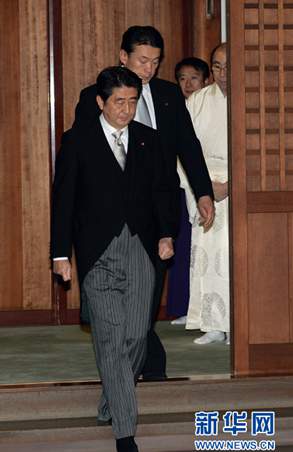 |
| Japanese Prime Minister Shinzo Abe (2nd R) visits the war-linked Yasukuni shrine in Tokyo, Japan, on Dec. 26, 2013. |
Japanese Prime Minister Shinzo Abe sent the ritual offering of a “masakaki” ceremonial tree to the notorious Yasukuni Shrine during the shrine's spring festival on Thursday.
The Yasukuni Shrine honors 14 Class-A convicted war criminals of World War II, including Hideki Tojo. It is a spiritual tool and symbol of Japanese militarism. Nevertheless, even protests and condemnation from the international community don’t change Abe’s stubborn impulse to worship these ghosts.
As Japanese philosopher Takahashi Tetsuya said, the Yasukuni Shrine is an ideological and religious appliance that cultivates warfare. Worshipping the shrine and the war criminals it honors reveal an obsession with militarism in Japan’s government.
In December 2013, despite strong protests from China and South Korea, Abe visited the Yasukuni Shrine for the first time. Since then, Abe has gone to the shrine several more times, and sent his most recent offering despite the imminent G7 Ise-Shima Summit.
Last year marked the 70th anniversary of the allied victory in World War II. Forced to watch such grand celebrations in honor of the milestone, it's easy to imagine that Japanese leaders might not be too pleased.
Nevertheless, the way Japanese leaders are reacting is counterproductive and insensitive. At the end of last year, the Liberal Democratic Party even established an organization to “verify the truths of modern historic issues including the trials of the International Military Tribunal for the Far East and Nanjing Massacre.”
On March 18 of this year, Japan's Ministry of Education, Culture, Sports, Science and Technology required that changes be made to the way textbooks present the country’s modern history. Now many people are worried about the effects of teaching young children a skewed historic perspective.
Japanese historian Yamada Akira believes that the debt of history will eventually be paid back. The perspective of the Abe government has regressed, but that doesn’t mean Japan can permanently avoid reckoning with its history of aggression; the country’s past contains misdeeds that Japan must correct sooner or later if it hopes to possess the trust of its neighbors. However, if Japan refuses to learn and move on from history, then the future of the country — and the peace and stability of Asia — is bleak.
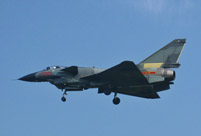 The evolution of J-10 fighter
The evolution of J-10 fighter Top 10 Asian beauties in 2016
Top 10 Asian beauties in 2016 What's happening in Xisha Islands?
What's happening in Xisha Islands? When female soldiers meet flowers
When female soldiers meet flowers North Sea Fleet conducts drill in West Pacific Ocean
North Sea Fleet conducts drill in West Pacific Ocean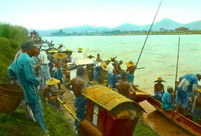 Old photos record the change of Sichuan over a century
Old photos record the change of Sichuan over a century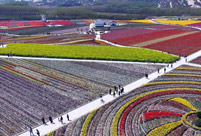 Breathtaking aerial photos of tulip blossoms in C China
Breathtaking aerial photos of tulip blossoms in C China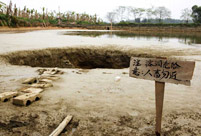 Horrific: Pit swallows 25 tons of fish overnight
Horrific: Pit swallows 25 tons of fish overnight Vietnamese Su-30 fighters fly over Nanwei Island in South China Sea
Vietnamese Su-30 fighters fly over Nanwei Island in South China Sea Top 20 hottest women in the world in 2014
Top 20 hottest women in the world in 2014 Top 10 hardest languages to learn
Top 10 hardest languages to learn 10 Chinese female stars with most beautiful faces
10 Chinese female stars with most beautiful faces China’s Top 10 Unique Bridges, Highways and Roads
China’s Top 10 Unique Bridges, Highways and Roads Great service or too much
Great service or too much Reality show sparks anger after endangering relics
Reality show sparks anger after endangering relics Relocated farmers not provided government services
Relocated farmers not provided government services ‘Leftover Women’ don’t want to wear stereotyped labels, even proudly
‘Leftover Women’ don’t want to wear stereotyped labels, even proudlyDay|Week